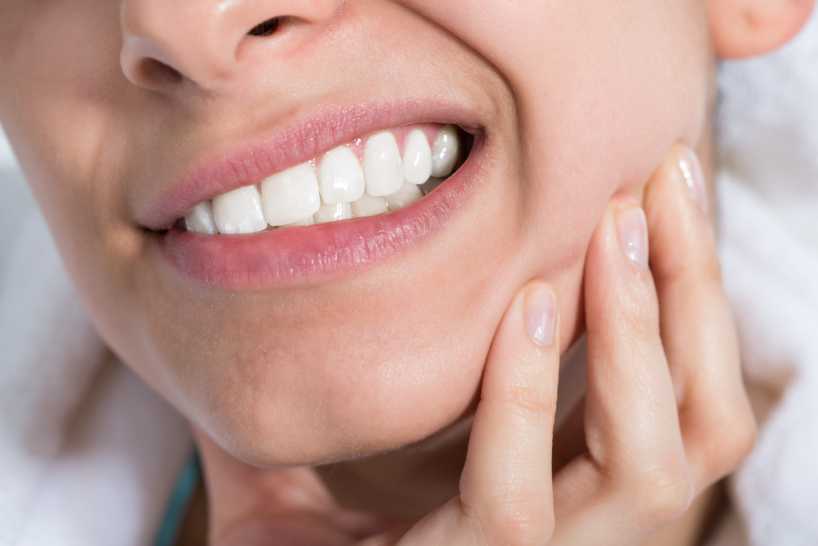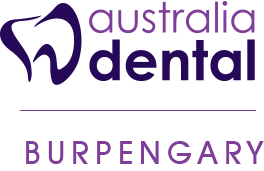WHAT DOES TOOTHACHE and SWELLING MEAN?
What Does Toothache and Swelling Mean?

Toothache can happen for many reasons and is sometimes benign, but toothache accompanied by swelling is more likely to indicate a serious problem.
If you have pain and swelling in your mouth, it’s important to see your dentist or doctor as soon as possible. They’ll aim to find out what’s causing your symptoms so they can treat the problem at the cause.
Types of toothache and swelling
Teeth can hurt for many reasons, and toothache can range from mild discomfort to severe pain. This pain may be constant, intermittent, or only hurt when you bite down with the tooth. It may affect a single tooth or several teeth and could also spread to the jaw, ear, or head.
Swelling (inflammation) can affect the gums, other soft tissues in the mouth, or may be in the jaw or face. If you have swelling around a painful tooth, these symptoms are likely connected. Other related symptoms could include tooth sensitivity and bleeding gums.
When to see a dentist
If you have a toothache without swelling, you should make an appointment to see a dentist if the pain lasts longer than two days. They will try to find out what is causing the pain and may prescribe pain relief medication to help you manage the discomfort.
If you have any swelling in your mouth, face, or jaw, see your dentist or a doctor as soon as possible. This can sometimes be a sign of an infection, which can get worse the longer it isn’t treated, as well as prolonging your discomfort. This can be life threatening if left untreated
Other possible signs of an oral infection include discharge from the mouth, trouble breathing or swallowing and fever. If you have any of these symptoms, make an emergency appointment with your dentist or visit your nearest emergency room.
Not going to the dentist and hoping that your toothache and swelling will go away on their own could be dangerous if you have an infection. Even if your symptoms do subside, the underlying problem could still be present, so it is better to be safe than sorry.
What causes toothache?
There are many possible causes for dental pain. You’ll need to see a health professional to get a reliable diagnosis and discuss your treatment options.
Reasons for toothache may include:
• Tooth decay – when bacteria wears down tooth enamel, this can expose the more sensitive dentine layer underneath
• Gum disease – if gingivitis develops into more severe gum disease, this can cause the gums to recede and teeth to ache and come loose
• Root canal infection – if tooth decay or other damage reaches the soft centre of the tooth (the pulp), this can cause severe tooth pain and sensitivity
• Chipped or cracked tooth – injuries to teeth can cause pain and sensitivity and may leave the tooth open to infection
• Loose or broken filling – if part of a filling, crown or other dental work comes loose or falls out, this can leave the underlying tooth vulnerable
• Dental abscess – severe tooth decay or gum disease can cause a painful abscess to develop inside the gum
• Impacted wisdom tooth – if a wisdom tooth or other tooth is stuck (impacted) inside the gum, this can be painful and also cause swelling
• Teeth grinding – if you grind or clench your teeth when you sleep (bruxism), this can put strain on your teeth and cause them to hurt in the morning
• Mouth ulcer – an ulcer can cause pain in nearby teeth
• Sinus infection – pressure or swelling in the sinuses may cause toothache, especially in the upper jaw
• Jaw problems – a misaligned jaw or other problems with the jaw or temporomandibular joints (TMJ) can cause an uneven bite and toothache
What causes facial swelling?
Swelling of the mouth, jaw, face, or neck can also have many possible causes, including:
• allergic reactions
• dental abscess
• fluid retention
• hormonal disturbances
• impacted wisdom teeth
• infections
• injuries
• medication side-effects
• root canal infections
• sinus problems
• trauma from oral surgery
If your gum or face is swollen around a painful tooth, both symptoms are likely have the same underlying cause.
How are toothache and swelling treated?
If you visit a dentist because you are worried about a swollen or painful tooth, they will ask you to describe your symptoms and may enquire about your medical and dental history and any medication you’re taking.
They will then examine your mouth to see if they can spot any signs of a problem. This may involve taking an x-ray to see inside the teeth and beneath the gums. This is necessary to diagnose or rule out issues such as a tooth infection or dental abscess.
Once they have completed the examination, your dentist may be able to diagnose the problem and discuss appropriate treatments with you. Depending on what’s causing your toothache and swelling, you may be given advice for how to recover at home or your dentist may recommend a treatment such as:
• placing a filling or dental crown to strengthen, rebuild or protect a tooth
• gum disease treatment
• root canal therapy to treat an infected tooth
• replacing broken fillings or crowns
• antibiotics to treat an infection
• draining an abscess
• wisdom teeth removal
• bruxism treatment
• TMJ treatment or jaw surgery
If your symptoms aren’t caused by a dental issue, your dentist may refer you to a suitably qualified health professional who can help you.
Recovery from toothache and swelling
Not all tooth pains and facial swelling require treatment. Your dentist may prescribe painkillers, anti-inflammatory medication, or other remedies to help you manage your symptoms at home while you recover. Always follow the instructions on the packet when taking any medication.
You could also improve your chances of a full recovery by:
• maintaining good oral hygiene
• eating soft foods
• not smoking
• placing an ice pack or cold compress against your face
• sleeping with your head slightly lifted
• gargling with salt water (not recommended for children)
Contact our dentists in Burpengary
If you want more advice or want to talk to one of our friendly dentists, call the team at Australia Dental Burpengary today. Get in touch on (07) 3888 9125 or book an online appointment on our website. We are happy to help



0